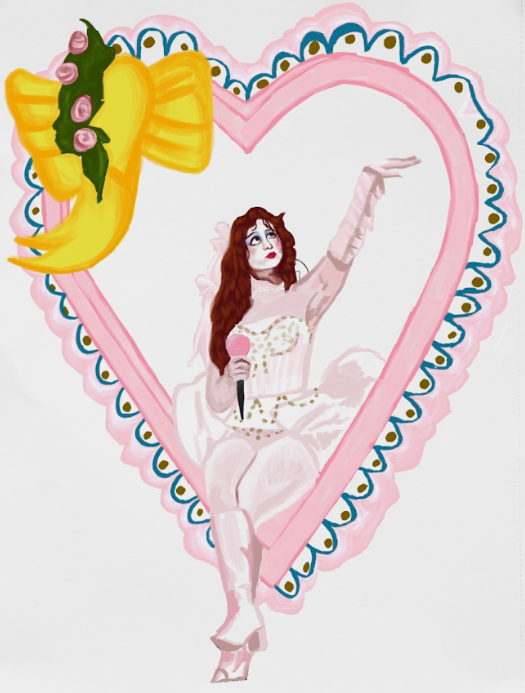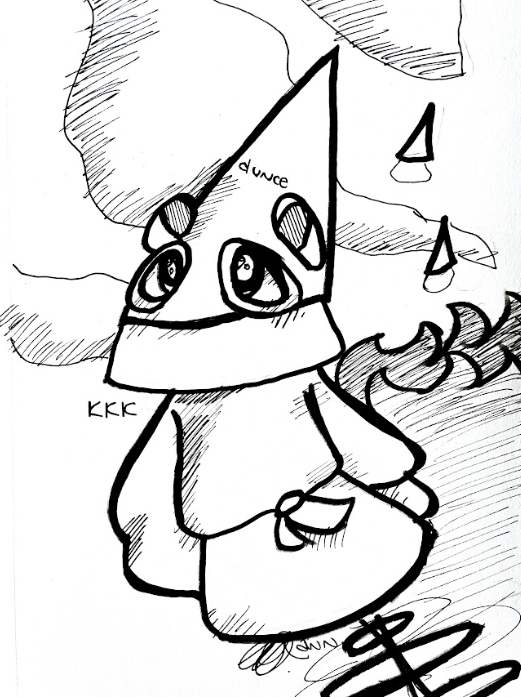Is it a relief or a rankle to know that since her founding, America has struggled with the liberal arts? From our earliest days as a nation, we have pulled toward, and subsequently pushed away from the significance of an education rooted in literature, languages, philosophy, history and the arts.
Several of our eighteenth century Founding Fathers, including John Adams and Thomas Jefferson, emphasized the societal value of a learned, educated citizenry; that wisdom gained from the liberal arts could foster Reason in the Age of Enlightenment, and thus invoke civic virtue. To them, the liberal arts could very well save us from barbarism. Today, we scoff at, and assume every barista we encounter is a philosophy major.
In “The Radicalism of the American Revolution”, historian Gordon S. Wood notes the earliest shift away from the liberal arts in the U.S. occurred almost immediately. The tumultuous development of our nation’s identity began as a departure from monarchism and aristocracy, shifting into republicanism and finally a democracy in which self-interest became the primary concern over public good.
Sentiments toward a liberal arts education were most notably divided between the Federalists and Anti-Federalists, the latter of whom associated such an education with elitism and therefore felt the liberal arts embodied the same oppressive hierarchy our revolution had sought to save us from.
Wood provides the example of William Manning, an uneducated farmer in the 1790s who wrote under the pseudonym of “a Labourer” against the educated elite—the gentry—and questioned the morals of those who did not seek to provide opportunities for themselves through dedication and hard work. Manning felt that those who “live without Labour” controlled the government, laws, newspapers and banks. These systems were manipulated in such a way to confuse and cost the common man. Sound familiar?
What is most disconcerting is that since the signing of our Constitution in 1787, we still haven’t figured out what role the liberal arts play in our identity, or why they are so valuable. The heart of the French Revolution—considered by many historians to be the quintessential revolution—was fueled by writers, philosophers, artists and activists whose legacies live on through the impact of their works on modern democracy. Locke, Rousseau, Montesquieu, de Tocqueville: we know these names even if we do not know their words.
Even America experienced her own literary and philosophical movement in the nineteenth century: Transcendentalism. We purchase framed quotes by Emerson and Thoreau, and Instagram them in our dorm rooms, but do we realize that self-reliance is more than just wall art? Perhaps it is, in fact, threaded in the very fabric of our national identity.
It might be possible that our continued struggle with the liberal arts stems from our desire to profit. As Wood notes, “Farmers worked harder and produced ‘surpluses’ during the (Revolutionary War), not . . . out of poverty and necessity, but in order to raise their standard of living and increase . . . their ‘pleasures and diversions.’” Domestic commerce within our young nation lead to a love of spending. If you could sell, you could profit. If you could profit, you could spend. And if you could spend, then you weren’t poor, and you pursued a lifestyle to prove just that. Sound familiar?
We tend to believe if we can’t profit from something, it isn’t worth our time. We’ve entered a nightmarish realm where now higher education is threatened by this ludicrous notion. UTSA has endured the exhaustive fight for Tier One status, but the struggle is much larger than that.
Public education across the nation is being reexamined and threatened by the concept of corporate school reform. Kindergarten classrooms to college lecture halls are under the microscope and subjected to “free market” policies and standards.
Many other public universities feel the pressure to prize STEM over the liberal arts. In 2011, Florida Governor Rick Scott said, “Is it a vital interest of the state to have more anthropologists? I don’t think so.” His daughter studied anthropology at the College of William and Mary in Virginia before going on to pursue an MBA.
In 2013, North Carolina Governor Pat McCrory said, “If you want to take gender studies, go to a private school and take it. But I don’t want to subsidize that if it’s not going to get someone a job.”
Here in Texas, we have the joy of dealing with the Texas Public Policy Foundation. According to The Nation, the organization is “a right-wing group that worked with Governor Rick Perry and Republicans in the state legislature to try to ‘disrupt’ the state’s two great institutions of higher learning: the University of Texas and Texas A&M.”
Divesting in state institutions has resulted in the scramble for those institutions to prove worth, merit; value. That value is equated with what STEM can provide and the job-training of business schools. The focus on pre-professional majors is not inherently unethical, but it is also not what makes a university.
Donald Trump wants a student’s chosen major to determine the availability of student loans. (Spoiler alert: no funding for French.) Former Texas Governor Rick Perry felt “public universities should charge students studying STEM subjects less than those pursuing a degree in the humanities or the arts,” according to Slate Magazine.
The corporatization of higher education would certainly shock and amaze the Founding Fathers. Some would decry how much we’ve compromised the humanities, while others might note that it is in the interest of the people to pursue what can be profitable. However, one thing must be made clear: if we are going to focus primarily on job training and career skills, we need to be honest with ourselves.
This is not a university nation: this is a trade school nation. There is nothing wrong with vocational training. But there is something incredibly wrong with providing it under the guise of a university education and devaluing the essential scaffolds of an intelligent and informed democracy. Once we can all witness and acknowledge this, perhaps then we can return to the subjects that inspired and ensnared the spirit of our nation to pursue truth, justice, et liberté.






